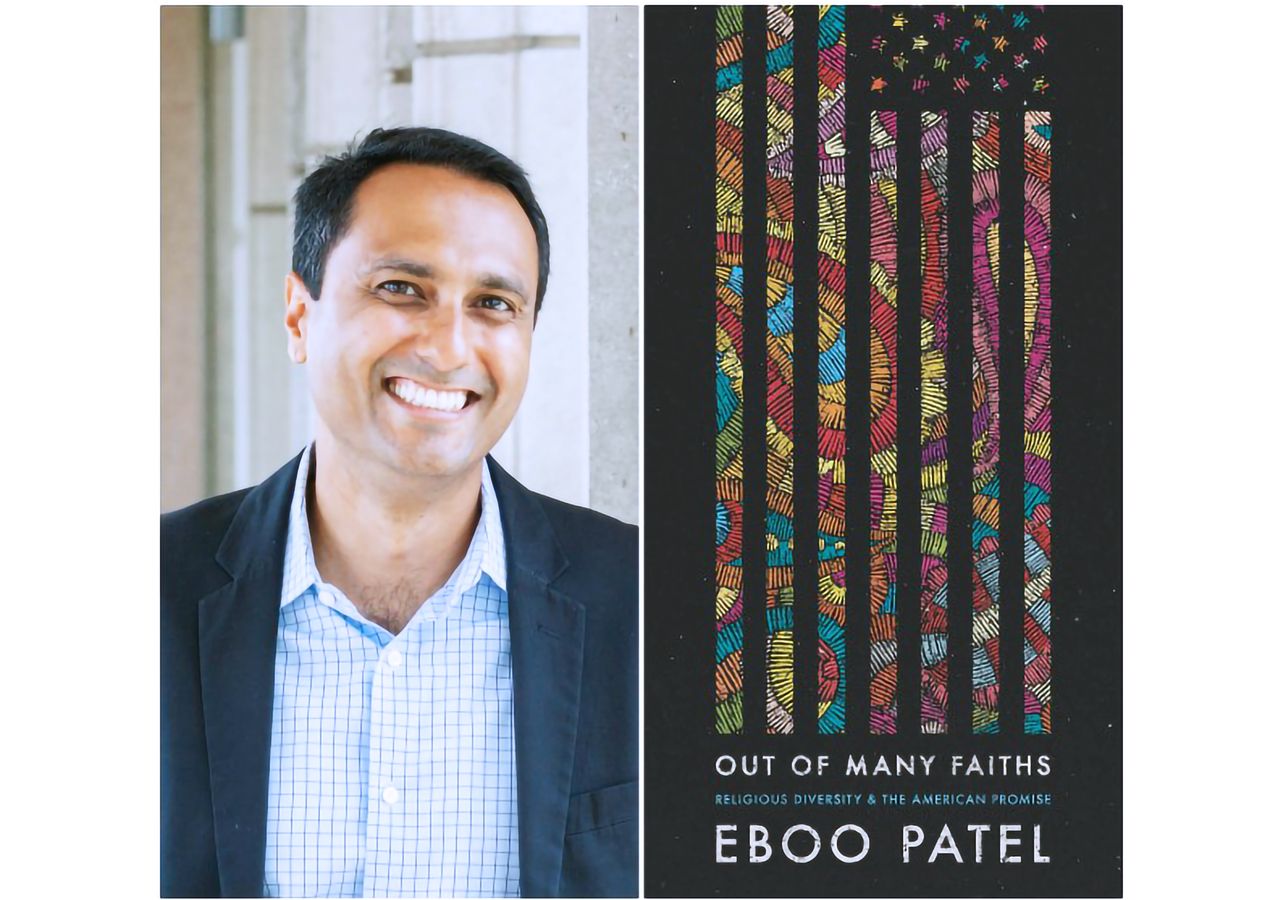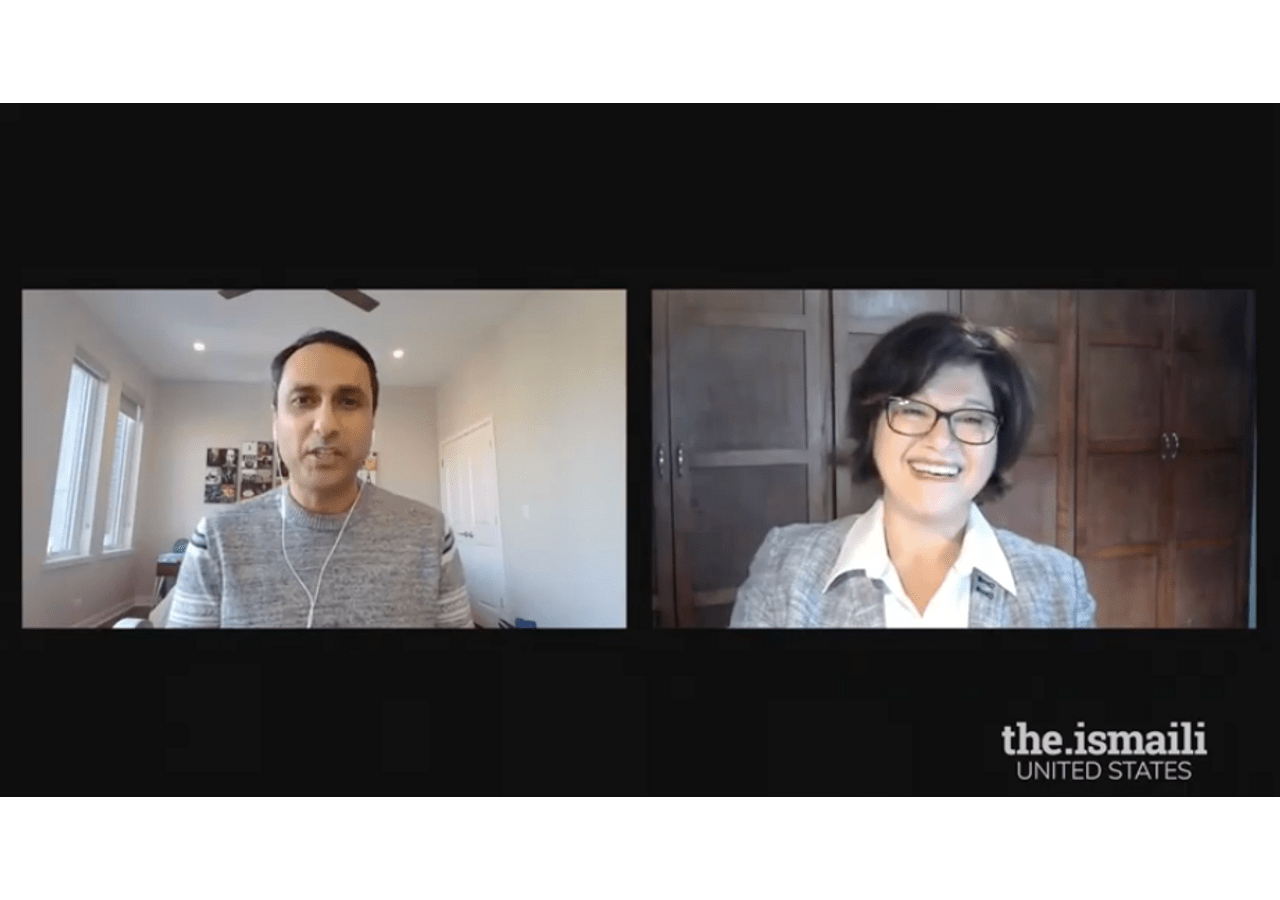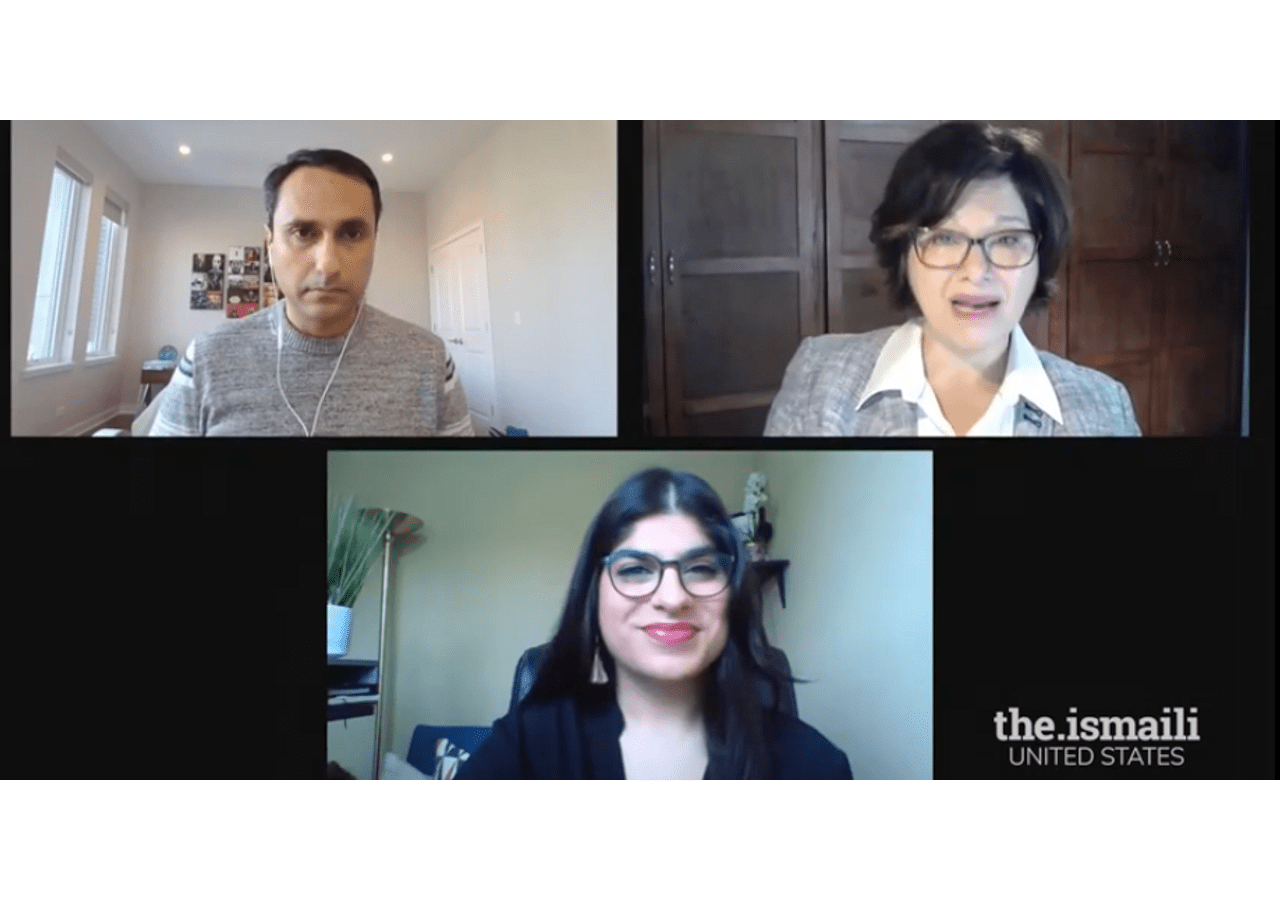To celebrate and recognize World Interfaith Harmony Week, the Ismaili Jamatkhana and Center USA collaborated with Interfaith Atlanta (IA), and Interfaith Youth Core (IFYC) for an interview and panel discussion with faith leaders to share their thoughts and learnings about interfaith initiatives.
The event was moderated by Rabbi Ellen Nemhauser and Albina Bhimani, President and Vice President of IA, respectively. The keynote speaker was Dr. Eboo Patel, founder, and president of IFYC, a Rhodes Scholar, and an author, who served on President Obama’s inaugural Advisory Council on Faith-Based and Neighborhood Partnerships.
IFYC is a national nonprofit organization that was founded in 2002 to bring together people of different faiths, worldviews, and traditions to build interfaith cooperation. IFYC focuses on U.S. colleges and universities to provide training and resources for interfaith dialogue.
Interfaith Atlanta, formally known as Faith Alliances of Metro Atlanta (FAMA), is an organization focused on creating respect, awareness, and dialogue amongst faith communities in the Atlanta area.
Dr. Patel shared the stage with several interfaith leaders including Reverend Kevin Crawford, and Interfaith Atlanta Board Members Aseelah Rashid, Co-Founder and CEO of the non-profit, The Muslim Mix, and Gareth Young, Co-Founder of Red Clay Sangha, an Atlanta Buddhist community.
In 2002, Mawlana Hazar Imam addressed the importance of dialogue around pluralism at the Prince Claus Fund's Conference on Culture and Development in Amsterdam, Netherlands, where he said:
“Developing support for pluralism does not occur naturally in human society. It is a
concept which must be nurtured every day, in every forum—in large and small
government and private institutions, in civil society organizations working in the arts,
culture, and public affairs, in the media, in the law, and injustice—particularly in
terms of social justice.”
Similarly, the United Nations resolution to recognize World Interfaith Harmony Week proclaims that there is an “imperative need for dialogue among different faiths and religions to enhance mutual understanding, harmony and cooperation among people.”
Eboo

This interfaith conversation focused on these values and objectives. It provided a space for interfaith leaders to share their work with each other and the wider audience.
During the interview, Raabi Nemhauser asked Dr. Patel about his first book, Acts of Faith, and the origins of IFYC. In his book, Dr. Patel questioned how to get millennials involved in interfaith work. He explained that the emphasis of IFYC, in its early days, was on young people, in the same way, that Dr. Martin Luther King, Jr. and Mahatma Gandhi started their social justice work in their twenties.
An important misconception that was discussed was the concern that some people have about the dilution of their own faith when doing service or working with other faith communities. Dr. Patel explained that “learning about your faith through your place of worship is not enough, learning about other faiths actually helps make your own faith stronger.”
The opportunity to share one’s faith or identity and discuss it with others allows us to become more confident in our identities, as it gives us a chance to learn about each other’s faiths and respect the differences. Rabbi Ellen said it well when she explained that Canadians describe society as a “mosaic.” This description aligns with Mawlana Hazar Imam’s comments on globalization made at Harvard University, when he said, that “A cosmopolitan society regards the distinctive threads of our particular identities as elements that bring beauty to the larger social fabric.”
There continues to be a discussion about the appropriateness of the “melting pot” concept prevalent in the USA, resulting in some loss of historical identity. The notion reflects a monocultural vision of society, compared to the multicultural approach favored in Canada. Perhaps, a common value system and community with shared ideals is possible, without diluting or removing particular cultural traits and traditions of people, and their total assimilation into a society that is already changing in its demographics.
The second half of the event allowed panelists to share their thoughts on why they do interfaith work and ask Dr. Patel questions on the topics of pluralism, diversity, and the importance of the act of dialogue between people.
Young explained the importance of creating space and learning how to speak to one another. The very act of dialogue, in this case about faith and religion, is a skill in itself—
that is learned. He later stated that “it gets most fun and most challenging when it gets difficult...when we have barriers.” The discussion emphasized that disagreements are expected and barriers are meant to be faced—one way of facing them is through dialogue.
Reverend Crawford inquired about the relationship between multifaith and social justice. Dr. Patel explained that different communities have different definitions of justice, and emphasized the importance of discussing these disagreements and preparing for them. He stressed that “diversity is not just the differences you like.” He asked viewers to expect disagreements between individuals and use them as a way to engage in dialogue and further one’s learning. He added that current times are full of deep political polarization and he quoted Amanda Gorman, “now is a time to engage generously,” from her poem at the inauguration of President Biden and Vice President Harris.
“America changes, we can change America—that is the promise of interfaith work,” said Dr. Patel, emphasizing that it is in our hands to create change, educate each other, and build bridges through dialogue and service, as we work towards building tolerance in our society.










